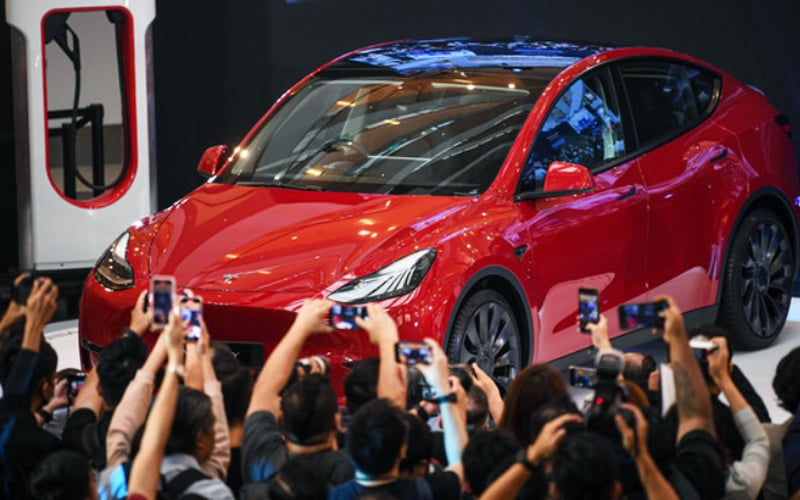
PETALING JAYA: Granting preferential treatment to Tesla is a good move to bring in quality investment into Malaysia, according to two economists.
Geoffrey Williams of the Malaysia University of Science and Technology sees the deal as pragmatic, while Shankaran Nambiar views it as a possible emphasis on efficiency over social restructuring.
Their views are in contrast with the criticisms that have been levelled by some quarters against the government following an announcement that the electric vehicle (EV) manufacturer would not have to comply with certain local requirements when it sets up its regional headquarters and sales and service centres in Malaysia.
Typically, foreign carmakers have to appoint a local partner to distribute their vehicles in Malaysia and any foreign venture is required to have at least 30% Bumiputera equity participation.
However, Tesla has been given an exemption from these requirements.
Its sister company, SpaceX, is also exempted from meeting the requirement of 51% local equity ownership for its Starlink system in Malaysia.
Last week, Tesla began taking orders for its Model 3, less than two months after Prime Minister Anwar Ibrahim announced that it was setting up its headquarters in Selangor.
He claimed the investments by Tesla and SpaceX have the potential to create “tens of thousands” of high-value jobs.
Williams said the deal offered to Tesla carried economic benefits for the country.
“The Tesla deal is exactly what Malaysia needs to do in order to develop its economy,” he told FMT Business.
“The current restrictions on foreign direct investments harm the investment environment. Removing these restrictions is so much better and leverages so many more options.”
He said the Bumiputera equity requirement is meaningless if the 30% portion is held by a GLC.
“This is because GLCs are national companies owned by all Malaysians, and not only the Bumiputera community,” he said.
Nambiar, of the Malaysian Institute of Economic Research, agreed that the preferential treatment given to Tesla should be viewed positively.
“The government seems keen to move away from the Bumiputera equity requirement. This may well be a start to emphasising efficiency and a return to investment over social restructuring,” he told FMT Business.
“The Tesla agreement could be among the first steps the prime minister is taking towards a restructuring of national priorities, a reformulation of the national agenda.”
Good long-term potential
While Tesla’s decision to invest in Malaysia was paraded by the government as a huge economic success, the experts were more sober in their assessment of the impact of the move.
Williams acknowledged that the EV manufacturer’s entry would have limited benefits for the time being.
“To begin with, this is a sales and service outfit with a regional headquarters. So, the benefits will be limited as very few Tesla models will be sold in Malaysia alone,” he said.
However, he said the move potentially brings strong long-term benefits for Malaysia’s economy. This is provided that the government can link the sales centre to upstream production.
“In the long term it is more significant if it (the sales centre) is linked to production, batteries and rare earth extraction. This would have a very valuable impact,” he said.
“It also signals high profile confidence in Malaysia as an investment location and is a personal win for Anwar.”
Nambiar pointed out that there was no indication Tesla was going to locate its entire EV manufacturing in Malaysia.
“Providing diagnostic and customer services may not bring a great deal of added value to the economy and the benefits as well as welfare spillover will be limited,” he said.
However, he added that it could lead to the setting up of a battery manufacturing facility, transfer of technology and the creation of an EV ecosystem. - FMT



No comments:
Post a Comment
Note: Only a member of this blog may post a comment.